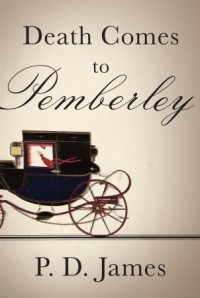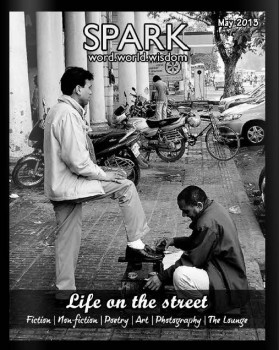by Priya Anand
Death comes to Pemberley, by PD James, a sequel to Jane Austen’s much-acclaimed Pride and Prejudice, is a difficult book to slot. A much-awaited read, at least for me, it turned out to be less of a mystery and more of an insipid rehash of Austen’s novel set in Victorian England. However, to an avid Austen fan, who has read and reread Pride and Prejudice and other sister novels such as Sense and Sensibility, Emma, Persuasion etc., it can be a nostalgic revisit. How are the Darcys and what is happening in their lives?
Set six years after Pride and Prejudice, the novel begins with the happily-married Darcy and Elizabeth who are now the parents of two young children. Their tranquil and content life is, however, affected by a murder in the vast woodlands of Pemberley. The suspect is none other than the infamous Mr. Wickham, the charming seducer of young women, the deceitful cheat who is almost, always in debt.
We expect a complex plot with the twists and turns typical of Austen’s earlier books, and a protagonist worthy of Adam Dalgleish, the dark and brooding detective from James’s earlier novels, but it does not happen. Perhaps James is a little lost without the characters, tools and scenarios that her previous novels are famous for – a clever unassuming detective, a committed police force, state of the art forensic labs, the protagonist’s angst so well-demonstrated through his poetry, and the contemporary English setting with rough urban edges that at times alternates with a traditional old fashioned ambience. With ‘Death…’ she is confined to an already-established setting that is Victorian and restrictive. In attempting to remain true to Austen’s style of narration, the narration is weighed down by a weak storyline and a whodunit that falls flat.
Darcy is at his introspective best. His turmoil and unhappiness in the wake of the murder and of Wickham’s unwanted intrusion into their lives, his passionate love for Elizabeth and their children – which is at odds with the norms that rule Victorian society – and above all his concern that this incident would besmirch the reputation of Pemberley and all that it stands for, are well rendered.
Surprisingly Elizabeth is portrayed as one-dimensional and insipid. As mistress of Pemberley, she must concern herself with managing a vast household with a retinue of servants. Despite “her unfortunate antecedents”, Elizabeth, with the help of Mrs Reynolds, manages to hold her own in a society which is waiting to see her stumble and become unworthy of the position she holds as Mrs Darcy. She is also of course the mother of “two fine sons”, which goes a long way in winning acceptance from her peers. Elizabeth, weighed down by responsibilities, rarely speaks her mind, and as a woman does not of course participate in important scenes or conversations that focus on the incident (the ghastly murder), the analysis of evidence or the inquest and trial that are described in fine detail. Her role is confined to comforting the affected and aggrieved, supervising arrangements for the ball and later cancelling them, and visiting families of staff living on the estate. Her liveliness, outspokenness, quick wit and even physical agility (remember the long walks she took in Meryton, her quick hike to Netherfield when Jane fell sick, and in Rosings with Colonel Fitzwilliam?) are nowhere to be seen.
Surprisingly Wickham is the most interesting character in the novel. Almost as many pages are devoted to him as to Mr. Darcy. As in Pride and Prejudice, one’s feelings towards him remain ambiguous until the very end. He is a victim of circumstances, much of his own doing, a man of contrasts – a gambler, an alcoholic, a seducer of women, yet a hero who had distinguished himself in the 1798 war against the Irish Rebellion. As Darcy himself puts it: “I cannot believe that the Wickham I once knew, despite his faults, would be capable of a brutal murder.”
All other characters are cardboard cutouts, making their brief entry and exits – Georgiana, Lydia, Jane, Bingley, Mr. Bennett, Lady Catherine De Burgh are swiftly dealt with, they have nothing much to say and do not contribute to the storyline in a substantial manner. Colonel Fitzwilliam makes a promising start and there is an inkling of a parallel storyline, but it is soon abandoned and what starts with a promise of a bang ends with a fizzle. Passing references are made to Mrs. Bennett, Charlotte and Mr. Collins. New characters are introduced, but with the exception of Mr. Alveston (a lawyer and close friend of the Bingleys and a potential love interest for Georgiana), they add no weight to the story. There is none of that sparkling wit or the extraordinary etching of memorable characters like Mrs. Benett and Mr. Collins.
The language is precise and exquisite, and the detailing is flawless, mimicking the inimitable style and prose of Austen. Pemberley as always is perfect with everything working like clockwork, but here it takes on dark sinister overtones. James excels at describing the working of Victorian English law – its process and procedure are explained in detail and it is accurately followed in determining the facts of the case and the fate of the accused.
Ultimately it is the tame climax and the lack of intrigue that lets the novel down; murder, even in Victorian times, should and could set the heart pounding, as seen in Arthur Conan Doyle’s Sherlock Holmes novels. Fans of Austen and Pride and Prejudice of course will be able to revisit their favourite characters and discover what happened next. But disappointment awaits, for there are few romantic scenes between Darcy and Elizabeth and none of that fiery dialogue we so want to read – in fact almost none – where the two principal characters interact. They want to and you want them to, but alas, there is a household to run, balls to prepare for and a murder to solve.
Priya Anand has an MBA in Marketing from Wright State University, Ohio. She is a freelance Consultant who works with non -profits on programme development, research and communication. She is based in Bangalore, India and writes in her free time. She loves to read and travel and a few of her travel articles have been published in www.experienceheritage.co.in, an online platform on travel and heritage sites in India. She recently attended a creative writing course with the Bangalore Writers Workshop. She has written several short stories and dreams of embarking on a novel soon.







I’ve never read the novel. I have seen the television adaptation, which I enjoyed.